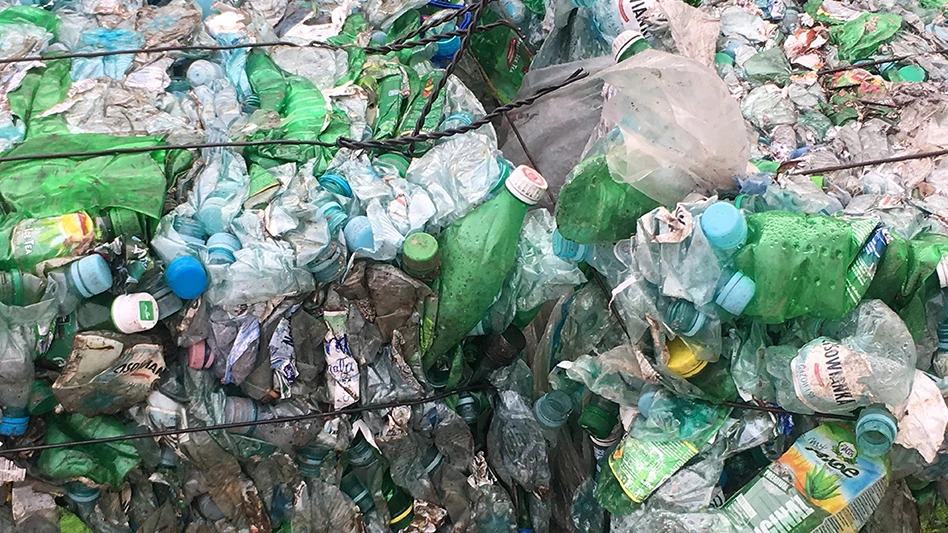
Recycling Today archives
A series of more than a half-dozen plastic recycling market reports prepared this summer for the Brussels-based Bureau of International Recycling (BIR) portray a market sector that is not experiencing a boom that was predicted for it just a few years ago.
Reporting from the United States, Sally Houghton of The Plastic Recycling Corp. of California writes, “California’s reclaimers continue to run operations at reduced capacities, often below 50 percent, with major cutbacks seen in shifts, labor and bale purchases.”
For those plastic scrap reprocessors, “Aggressive winter buying by Mexican companies and ongoing pressure from cheap imports continue to put strain on the market,” Houghton continues.
“Without meaningful changes in market dynamics, California’s entire polyethylene terephthalate (PET) recycling system will be at serious risk. Reclaimers have endured nearly two years of depressed sales, and another closure could severely disrupt the state’s recycling infrastructure,” she adds.
The view from other continents is little better, according to the July reports.
“Recyclers operating outside legally mandated sectors such as beverage bottles are facing growing margin pressure, as end users increasingly expect recycled materials to be discounted compared to virgin, forcing many recyclers, especially in Europe, to sell at a loss,” writes Max Craipeau of Hong Kong-based Greencore Resources Ltd.
“Prices for recyclates such as high-density polyethylene (HDPE), low-density polyethylene (LDPE), polypropylene (PP) and high-impact polystyrene (HIPS) have remained consistently low over recent months, with no sign of a recovery in demand,” writes Henk Alssema of Netherlands-based Inviplast, current president of the BIR Plastics Division.
Natalia Cruz Cayuela of Ferromolins in Spain refers to “low prices for virgin plastics combined with an increase in cheap recycled plastic imports from third countries, which are often accompanied by fraudulent claims owing to a lack of transparency regarding the origin of the materials” as contributing to Europe’s suboptimal plastic recycling conditions.
Steve Wong of Hong Kong-based Fukutomi Co. Ltd. says orders for recycled-content resins have dried up in parts of Asia.
“The recycled pellets market across Asia continues to deteriorate, with widespread reports of full warehouses, production cuts and halted procurement,” Wong writes. “In Malaysia, multiple recyclers of HIPS and acrylonitrile butadiene styrene (ABS) pellets confirm they have suspended most incoming purchases owing to a near standstill in downstream orders.”
Malaysia also is the site of new regulations that could lead to a reduction in reprocessing activity. “These new requirements, combined with mandatory electronic invoicing, have raised operating costs and added complexity to import procedures,” Wong writes. “Many recyclers are now suspending [scrap] imports altogether owing to uncertainty over whether shipments will clear inspection or face costly reexport.”